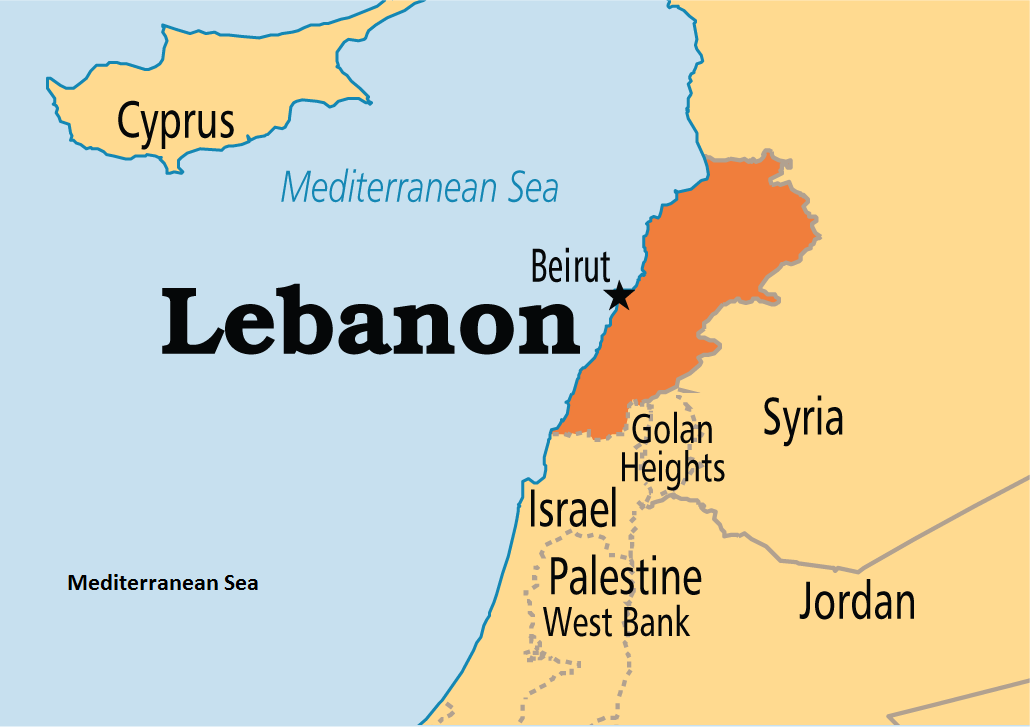Lebanon is a tiny country surrounded by bigger and more powerful neighbors. There is civil war right next door while another boiling pot is waiting to spill over from the south. It is a victim of its own geography.
The Cold War in the Middle East between the two regional powers is threatening to reach the country. Both Saudi Arabia and Iran understand Lebanon’s strategic location and its significance in their rivalry.
Under these circumstances, it is very difficult for the leadership of Lebanon to maintain national unity. With regional powers preying on it, there is the likelihood that it could be plunged into the quagmire just like Syria and Yemen before it.
What happened in the past few weeks?
The prime minister of Lebanon Saad Hariri went to Saudi Arabia and announced on Saudi’s national TV that he has decided to resign from his post. This comes as a shock to everyone in the political spectrum.
He addressed the assassination plot to take him out just like his father Rafik Hariri in 2005. Saad also accused Iran of meddling in the region as well as talked about Hezbollah’s growing influence.
So far, Lebanese authorities and civilians are demanding his return to the country, and resume his post as prime minister. The president and parliamentary speaker have rejected his resignation. Saad Hariri’s decision is a new imbalance in a country divided into sectarian lines.
Lebanese constitution divides power among different religious groups. The president of Lebanon must be a Christian. The post of prime minister must be in the hand of a Sunni Muslim. Shia Muslim must be the parliamentary speaker. This system is meant to ensure a balance of power within the country.
With Saad’s announcement of resignation, the balance is disturbed. Rumor has swirled that he has been under house-arrest by Saudi officials and that his resignation was actually forced upon him.
Middle East Cold War
Whether the rumor is true or not, it is clear that Saudi Arabia is taking a serious interest in Lebanon. Some people are speculating that Riyadh under 32-year-old Crown Prince Mohamed bin Salman is trying to undermine its arch-rival’s influence there.
Saudi Arabia and Iran are competing for influence and leadership in the Middle East. However, the two do not engage in direct confrontation. Both sides, on the other hand, fund proxies throughout the region to outdo each other.
In Syria, Iran supports President Bashar Al Assad in the civil war which is raging for more than 6 years. Its rival fund’s rebel groups to try to topple Assad. So far, Assad is having the upper hand with Iranian and Russian support. With victories against the rebels and ISIS, it is obvious that Iranian influence is growing steadily.
Meanwhile, Yemen is a humanitarian catastrophe. Thousands of civilians are either killed or in critical situation due to Saudi-led campaign to topple the Houthi rebel which is supported by Iran. There is lack of food and medical supplies as Yemen’s ports and airspace are blockaded.
Saudi Arabian leadership fear being encircled by Iran. Yemen is located in its southern border. If the Houthi rebel is able to seize power all over Yemen, Iran will have a firm foothold there.
Recently, a rocket was fired from Yemen toward Saudi’s capital of Riyadh. Although it was intercepted and shot down, Saudi officials called it a declaration of war by Iran on the country. This is an accusation which Iran has denied.
Meanwhile, Iraq after Saddam Hussein is dominated by Shia government friendly to Iran. With Iraq and Syria at Iranian side along with Hezbollah in Lebanon, Iran has secured itself a land route to the Mediterranean Sea.
Iran is also able to provide supplies to its proxy via this land connection. The Middle East Cold War seems to be in its favor at the expense of Saudi Arabia.
The Immediate Effects
It is possible that Lebanese prime minister’s resignation was at the insistence of Saudi Arabia. Hezbollah which is a powerful and influential armed group in Lebanon is backed by Iran. The group has members in the government, and has also played important role in Syrian civil war.
The Saudis may hope to undermine Hezbollah by creating instability in the country as Saad Hariri is an important figure in Lebanese domestic balance of power. Whether or not this is the case, public sentiment in Lebanon seems to be at odd with Riyadh.
The people still believe that their prime minister will return home soon. Saad’s own government rejected his resignation. It appears that all sides are somehow united in thinking that Saudi Arabia is having designs over Lebanon.
Israel seems to get closer to Riyadh in this crisis. Hezbollah and Iran are Israel’s main enemies and could post direct threat to the country. If armed conflict breaks out, Tel Aviv will find itself working with Sunni countries against the Shia Iran and its proxies.
Lebanon is heading toward a dangerous game of rivalry between Saudi Arabia and Iran. If it is not careful, it will suffer the fate of its neighbors.
It is not very likely that the two regional powers will directly engage in war. Such scenario will certain draw world powers such as US, Russia, UK, France, and China to get involve.Only one thing is clear: the proxy wars in the Middle East will continue to intensify.
writer
Puthyraksmey Yama
Marmara University
Department of Political Science and International Relations
Istanbul, Turkey
